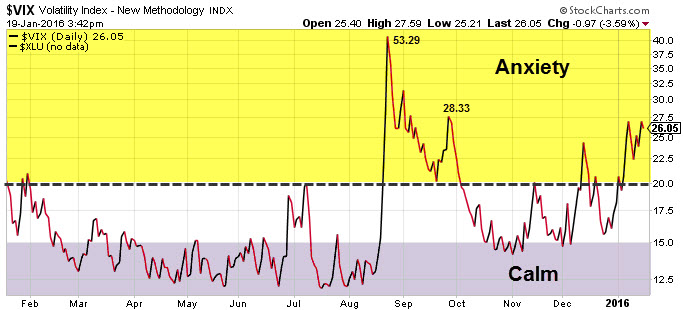- GOLD IRA
- Download Our 2024 Precious Metals IRA Investor’s Guide.
Click Here  Gold IRA
Gold IRA
 Investing
Investing
-
- CRYPTO IRA
- PRICES & STATS
- RETIREMENT PLANS
- BLOG
 Questions? Call (888) 820 1042
Questions? Call (888) 820 1042
Gold: What the Future Demands
Disclosure: Our content does not constitute financial advice. Speak to your financial advisor. We may earn money from companies reviewed. Learn more
Last Updated on: 25th December 2020, 06:38 am
Precious metals are generally seen as a store of value, a hedge against inflation and a safe haven during times of trouble. As such, they are an important defense against threats that are known or seem imminent. However, gold, silver and platinum can also serve as insurance against developments that few of us are really prepared for. Significant “tail events,” as they are called, have a low probability of occurring, but have catastrophic consequences when they do.
What brought this line of thought to mind was a recent article at Artemis–a news, analysis and data service devoted to the alternative risk transfer, catastrophe bond and insurance-linked securities markets–which discussed whether the insurance industry was prepared for a loss-generating event that would dwarf Hurricane Katrina. While such a scenario is not necessarily difficult for insurance underwriting specialists to identify or anticipate, the same might not hold true with respect to those that can reverberate across economies and markets.
In fact, there are any number of so-called black swans that could spur a widespread scramble to own gold and other metals as protection against catastrophic loss. By definition, such events are not known in advance, or at the least, few are expecting them. But as with those in the insurance industry who make it their job to assess the risk environment, it is worth thinking about what could lead to economically disastrous outcomes.
The lessons of the past
Admittedly, some scenarios are characterized as low-probability for good reason. While the postwar era has witnessed any number of severe disruptions, markets and economies have, for the most part, continued to march forward. That said, there are reasons to think that the risk of far-reaching turmoil is increasing. Among other things, history suggests that extended periods of subpar growth are often the precursor to geopolitical, political and social upheaval. Arguably, that may already be the case: prior to the 2008 financial crisis, for example, “globalization” was the watchword; since then, not so much.
History also tells us that when a leading nation is unable to project power as it once did, or its global dominance no longer seems unassailable, it can be the catalyst for dramatic and often unwelcome changes. While few would argue that the U.S. is not the most powerful nation on earth, a growing number of observers question how long this will last. Indeed, in “Prepare for the Post Pax-Americana Era, Says Citi,” FT Alphaville highlights an assessment that America's ability to maintain the global order has been “critically compromised.”
No longer out of the question
Under the circumstances, it is not so hard to see that once inconceivable scenarios are suddenly more likely. Among the most unsettling is the prospect of regional conflict or even a broad-scale war. Some might note that there have always been hostilities in places such as the Middle East, but the fact that tensions have been rising in the Korean Peninsula, the Greater China region, Eastern Europe and elsewhere seems more than coincidental.
Moreover, the prospect that the world's largest economic bloc might fracture or fall apart would have seemed like a figment of somebody's imagination only a few short years ago–but not now. While it is hard to say for sure whether such talk is alarmist rhetoric or a call to arms, the fact that someone such as billionaire investor George Soros could maintain without being derided as a fool that Europe is on “the verge of collapse” suggests it is not such a low-probability scenario after all.
Mr. Soros has made similarly unnerving remarks about the risk of a hard landing in China and another 2008-style financial crisis. He recently predicted that a slump in the world's second largest economy “will worsen global deflationary pressures, drag down stocks and boost U.S. government bonds.” In his view, “a hard landing is practically unavoidable,” he said in an interview with Bloomberg Television.…'I’m not expecting it, I’m observing it.'”
‘A severe issue out there'
Even if it turns out that the aforementioned threats don't come to pass, there seems to be clear signs that something nasty is in the works. In a recent interview with Swiss newspaper Finanz und Wirtschaft, James Bianco, president of Bianco Research, said as much:
Every time the financial markets get volatile and messy like this it deserves attention because the markets are trying to tell us that there is a severe issue out there. It’s been coming from all over the place: We got a collapse in commodity prices and we got financial markets across the globe selling off, including in the United States. So I’m going to pay a lot of attention to it.
To be sure, it is impossible to predict just where things are headed. But given what we know about the past and what is going on now, owning gold and other precious metals may be just what the future demands.



 Silver
Silver Gold
Gold Platinum
Platinum Palladium
Palladium Bitcoin
Bitcoin Ethereum
Ethereum


 Gold: $2,387.15
Gold: $2,387.15
 Silver: $27.92
Silver: $27.92
 Platinum: $931.67
Platinum: $931.67
 Palladium: $903.43
Palladium: $903.43
 Bitcoin: $67,909.13
Bitcoin: $67,909.13
 Ethereum: $3,254.68
Ethereum: $3,254.68